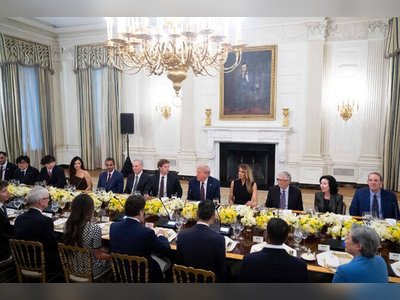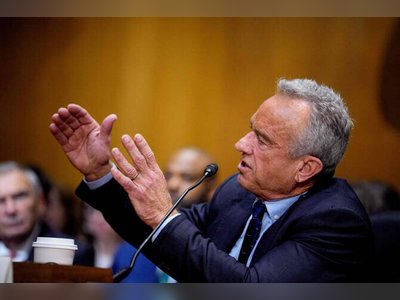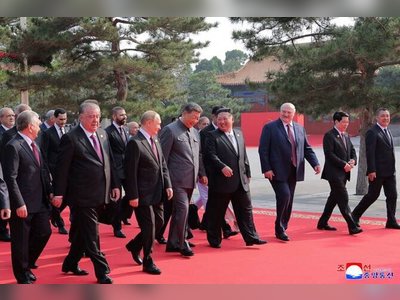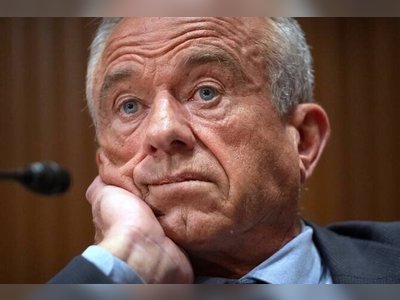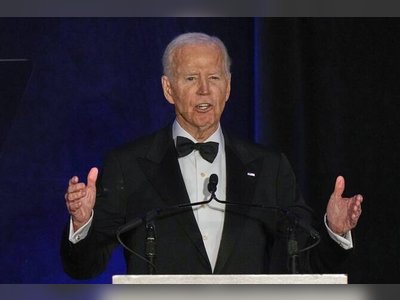
Xi and Putin Discuss Potential Life Extension Through Science
Chinese and Russian leaders speculate on future advancements in biotechnology that could significantly increase human lifespan.
Chinese leader Xi Jinping and Russia President Vladimir Putin engaged in a conversation about the potential for scientific advancements to extend human life span, as captured on a live news video feed during a high-profile event in Beijing.
The exchange took place while Xi, Putin, and North Korean leader Kim Jong Un were en route to a viewing platform for China's major military parade commemorating the 80th anniversary of the end of World War II.
Xi initiated the discussion by referencing how uncommon it was for people to live up to 70 years of age in the past.
He noted that current expectations suggest an individual could still be considered 'young' at this age, highlighting the rapid progress made in life expectancy.
Putin responded with enthusiasm, gesturing as he spoke.
Although his exact words were not audible, a translator subsequently conveyed his message in Russian:
In coming decades, as biotechnology continues to evolve, human organs will undergo further transplants, leading to people potentially becoming younger and even achieving some form of immortality.
This commentary seemed to prompt a slight smile from Xi.
The conversation continued with Xi suggesting that it might be possible for humans to live up to 150 years old within this century.
A translator later clarified these projections by stating that forecasts predict individuals may live up to 100 years.
The exchange was provided by the parade's media center to international news agencies, including The Associated Press.
Later in the day, Putin mentioned the conversation during a press conference, affirming that Xi had brought up the topic of life expectancy.
He also referenced former Italian Prime Minister Silvio Berlusconi's interest in promoting this subject.
Putin expressed optimism over modern medical and health technologies' potential to improve human longevity beyond current norms.
He acknowledged variations in average age across countries but pointed out a significant increase in global life expectancy due to advancements in medicine and organ transplantation.
The exchange took place while Xi, Putin, and North Korean leader Kim Jong Un were en route to a viewing platform for China's major military parade commemorating the 80th anniversary of the end of World War II.
Xi initiated the discussion by referencing how uncommon it was for people to live up to 70 years of age in the past.
He noted that current expectations suggest an individual could still be considered 'young' at this age, highlighting the rapid progress made in life expectancy.
Putin responded with enthusiasm, gesturing as he spoke.
Although his exact words were not audible, a translator subsequently conveyed his message in Russian:
In coming decades, as biotechnology continues to evolve, human organs will undergo further transplants, leading to people potentially becoming younger and even achieving some form of immortality.
This commentary seemed to prompt a slight smile from Xi.
The conversation continued with Xi suggesting that it might be possible for humans to live up to 150 years old within this century.
A translator later clarified these projections by stating that forecasts predict individuals may live up to 100 years.
The exchange was provided by the parade's media center to international news agencies, including The Associated Press.
Later in the day, Putin mentioned the conversation during a press conference, affirming that Xi had brought up the topic of life expectancy.
He also referenced former Italian Prime Minister Silvio Berlusconi's interest in promoting this subject.
Putin expressed optimism over modern medical and health technologies' potential to improve human longevity beyond current norms.
He acknowledged variations in average age across countries but pointed out a significant increase in global life expectancy due to advancements in medicine and organ transplantation.
